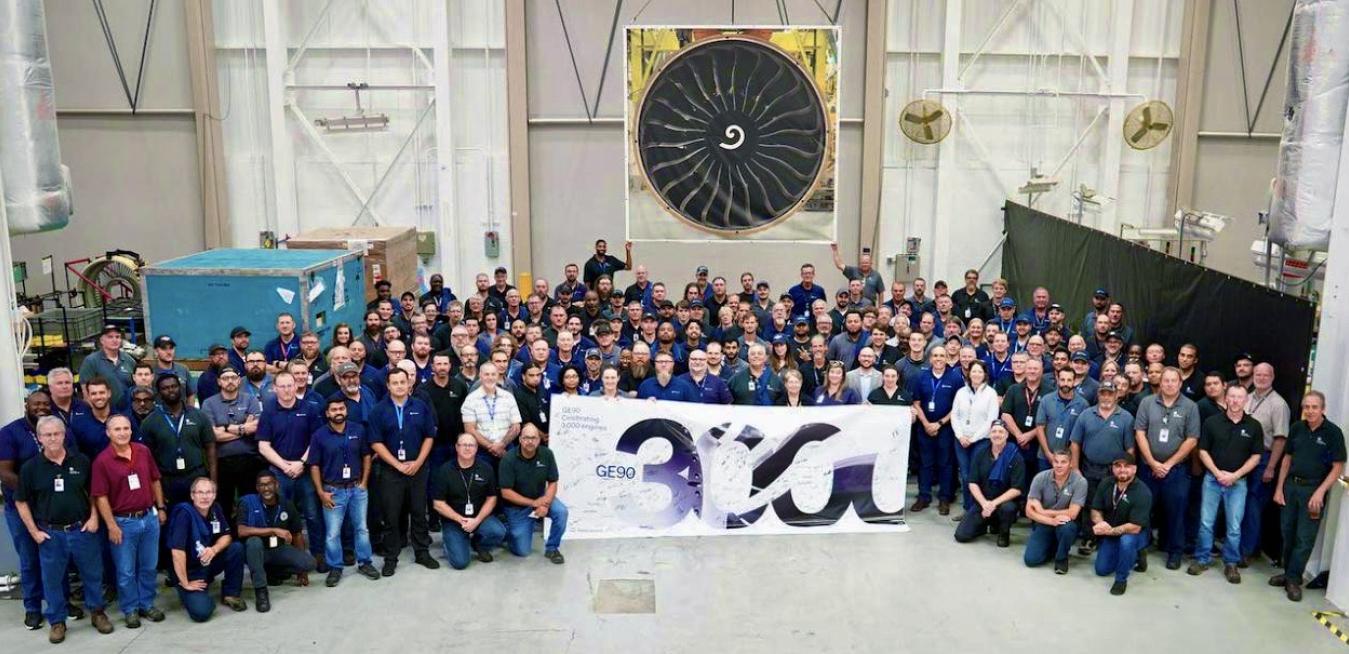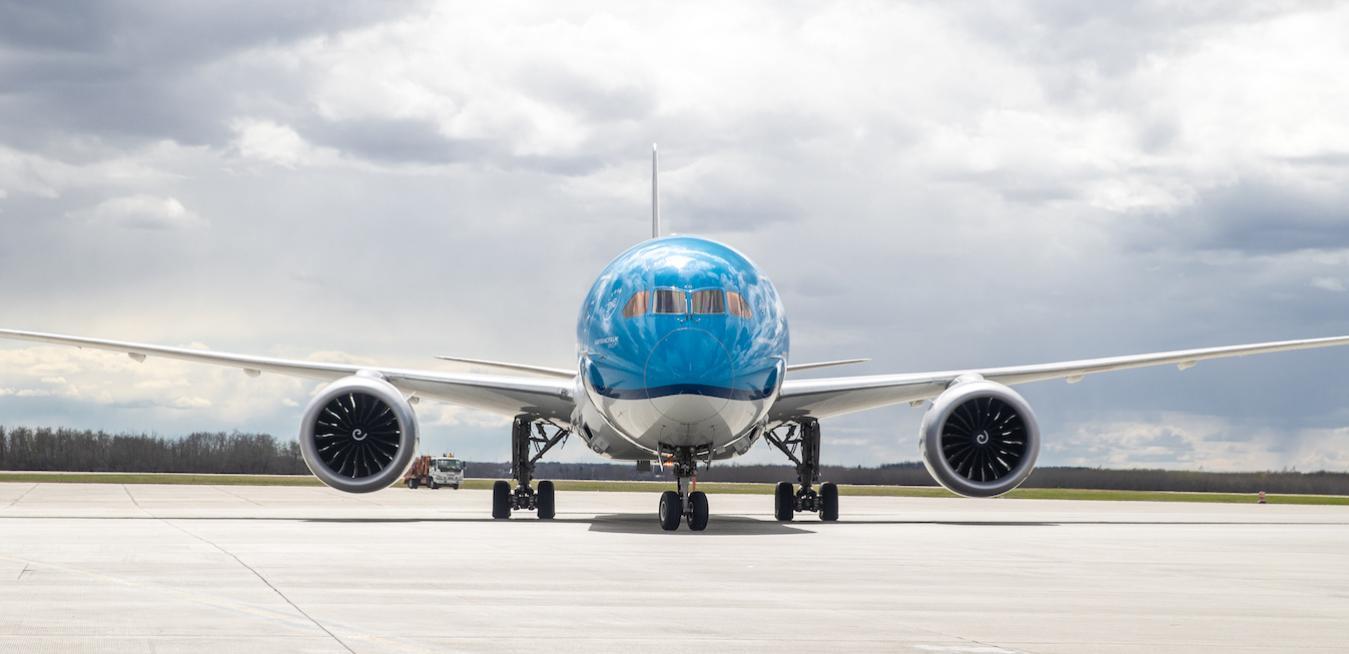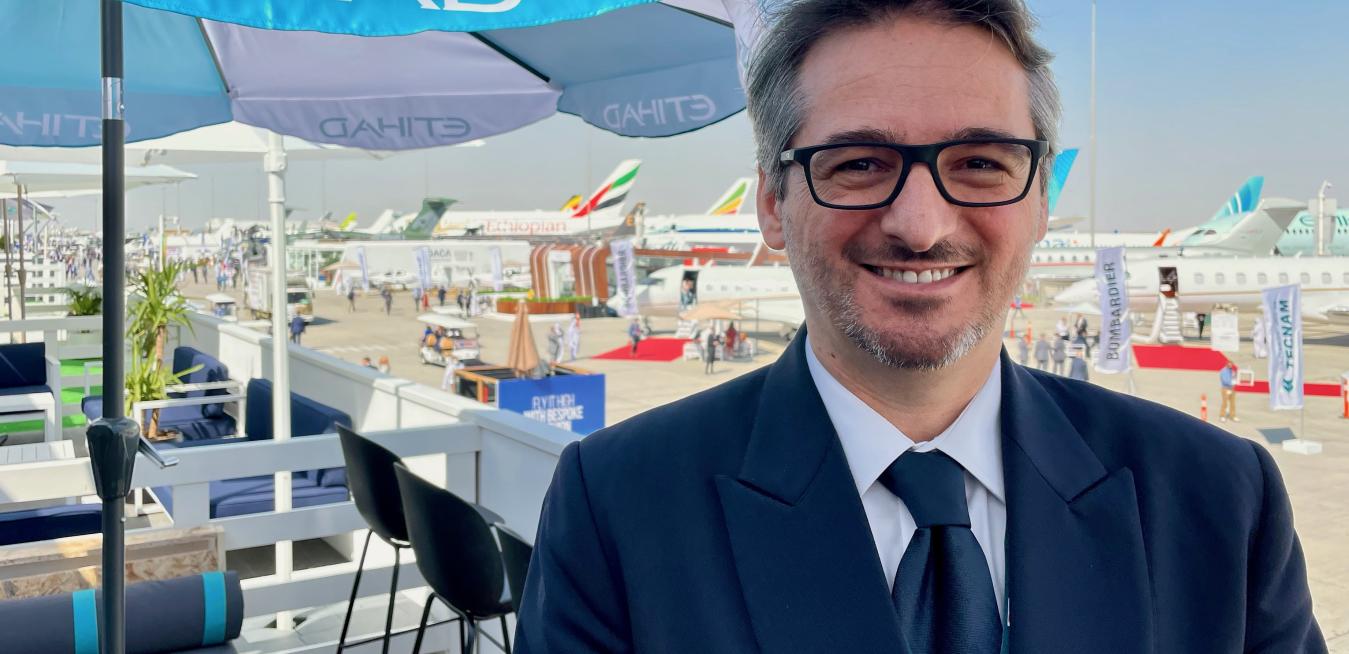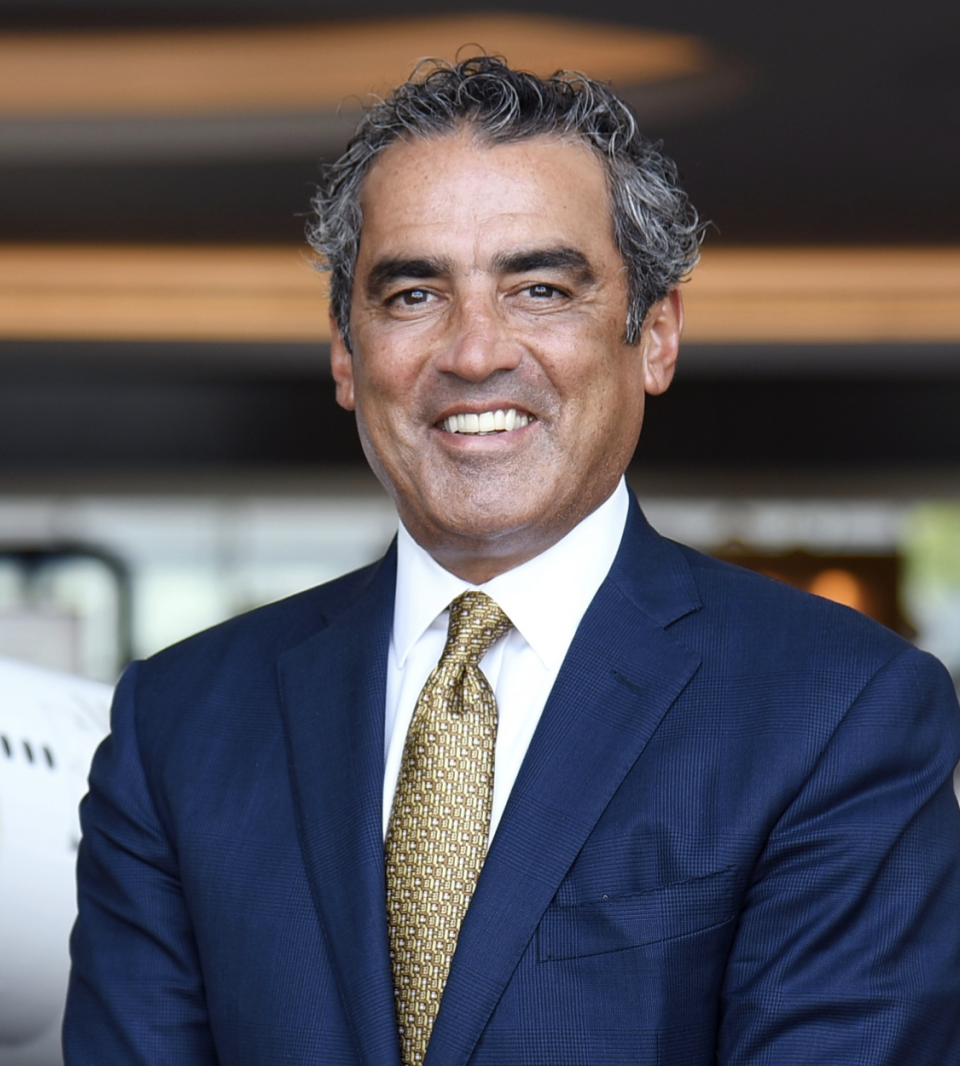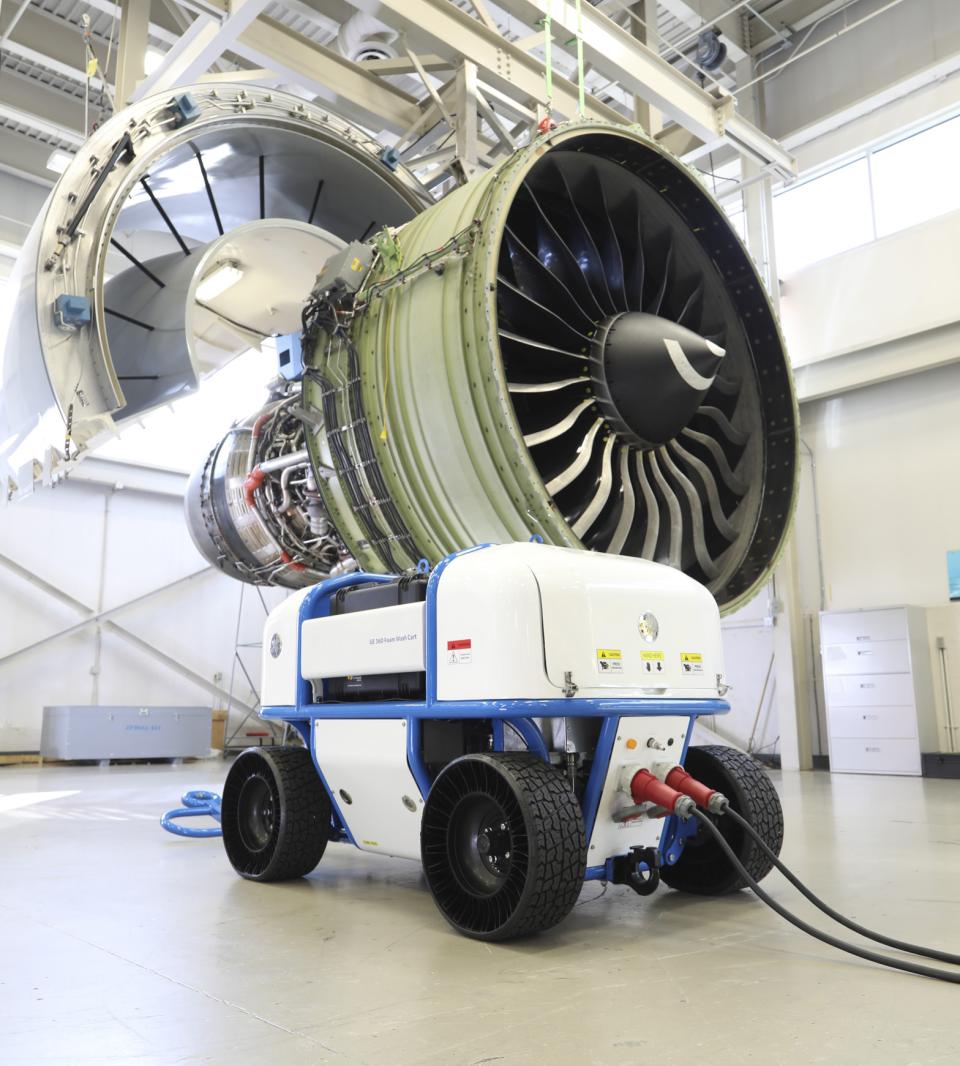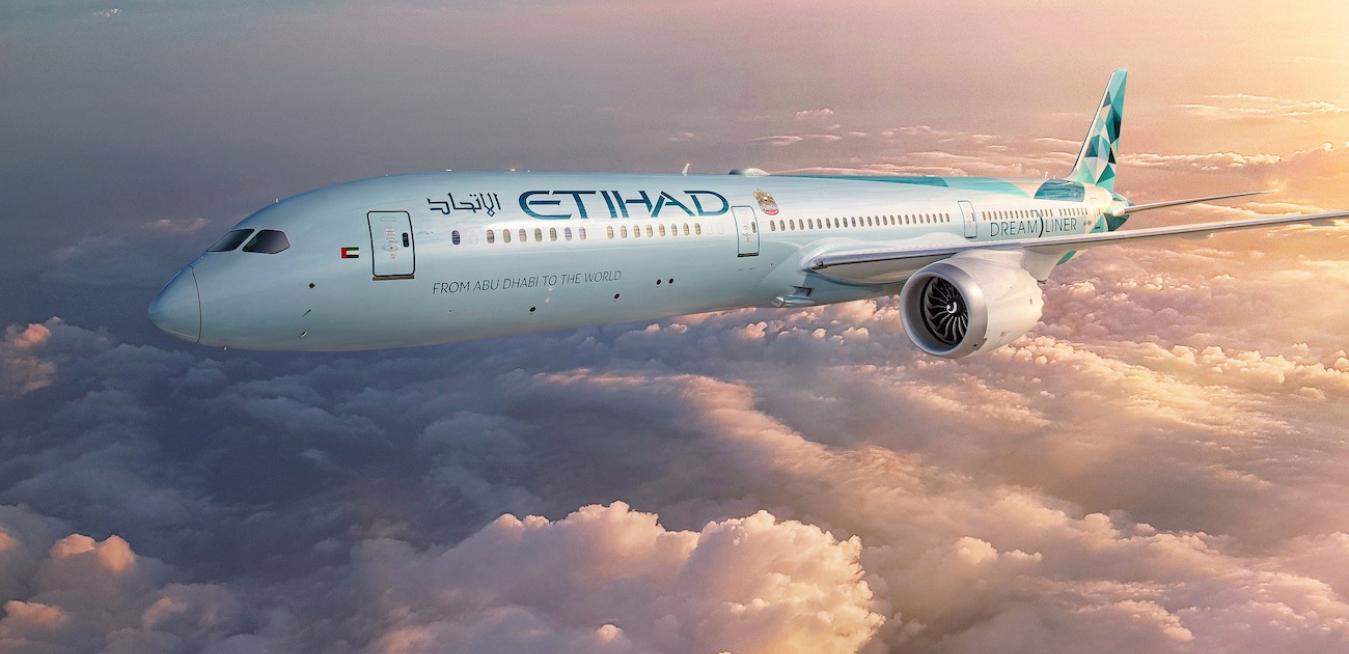In the annals of engine production, the GE90 holds a special attraction for both the aviation world and the people at GE Aerospace who’ve worked on the engine program. Among commercial engines, the number of firsts it’s chalked up over the years is hard to beat: First to enter service with carbon-fiber composite fan blades. First certified at over 100,000 pounds of thrust. First engine certified for ETOPS (Extended-range Twin-engine Operational Performance Standards). First certified with an additive part. First program to employ analytics-based maintenance.
Aviation accounts for about 2.5% of global carbon emissions. That’s why GE Aviation, CFM International — a 50/50 joint company between GE and Safran Aircraft Engines — and their airline industry and government partners are working hard to come up with solutions to reduce flight’s carbon footprint. As GE unveils its 2021 Sustainability Report, we looked back at some of this year’s biggest developments, which include sustainable aviation fuel, software that improves efficiency, hybrid electric propulsion, hydrogen fuel and other technologies.
When Mimmo Catalano was 5 years old, his dad took him to work at his office, at an airport in Sardinia, and the boy’s imagination was captured. Today Catalano is a 16-year veteran of Etihad Airways, and last October he captained a long-haul flight from London to Abu Dhabi that was like none before it. The Boeing 787-10 Dreamliner, powered by GE Aviation’s GEnx engines, produced carbon emissions 72% lower than those on a typical flight.
Mimmo Catalano still remembers his first business meeting. It changed his life.
He was only 5 years old when his father, who worked for an Italian airline, took him to his office at the airport. “That day I saw airplanes for the first time, and I loved them immediately,” he says. “From them on, I kept asking my father, ‘Hey, are you having a meeting at the airport? I want to come with you.’ It was love at first sight.”
As the head of engineering at Emirates, one of the world’s largest airlines, Ahmed Safa is responsible for many things. These days, few topics get him engaged faster than sustainability. GE Reports caught up with Safa at Expo 2020 Dubai, where he was attending GE’s Spotlight Tomorrow summit at the U.S. pavilion. The event took place just a few days before the 2021 Dubai Airshow, where Emirates and GE Aviation brought planes, engines and other technology to the forefront.
If there’s one thing airlines chase more than anything else when it comes to engines, it’s “time on wing.” The longer you can keep a jet engine in good working order without having to remove it for maintenance, the more flights you can complete and customers you can serve.
A routine commercial long-haul flight scored an important aviation industry milestone last week when a Boeing 787 operated by Etihad Airways flew from London to Abu Dhabi on a fuel blend containing sustainable jet fuel. The plane’s carbon emissions were 72% below those of an equivalent flight in 2019.
